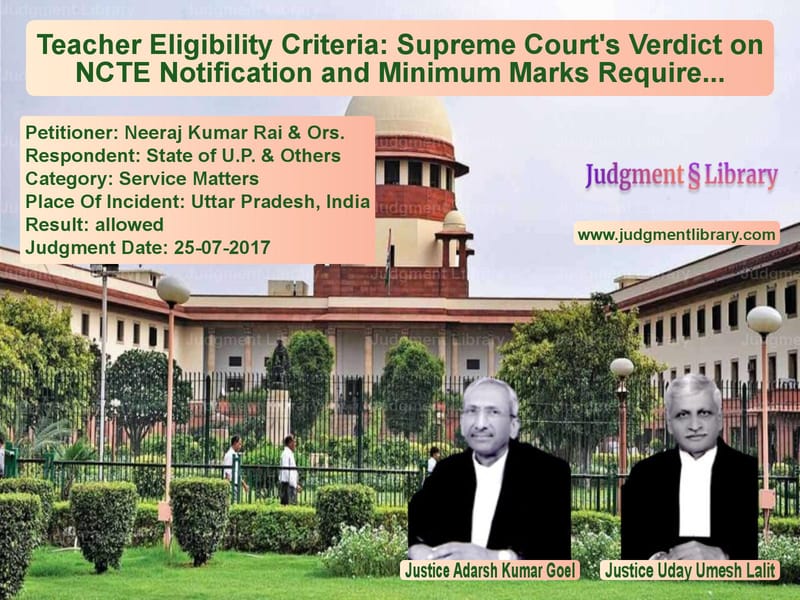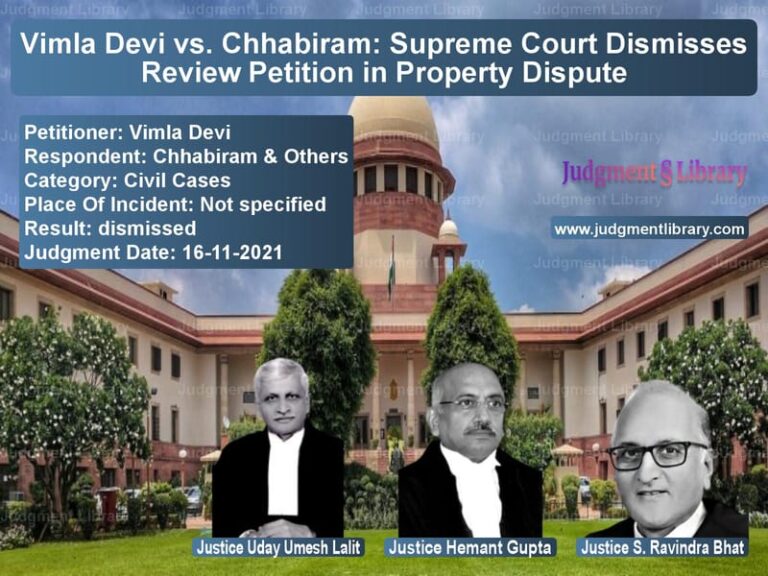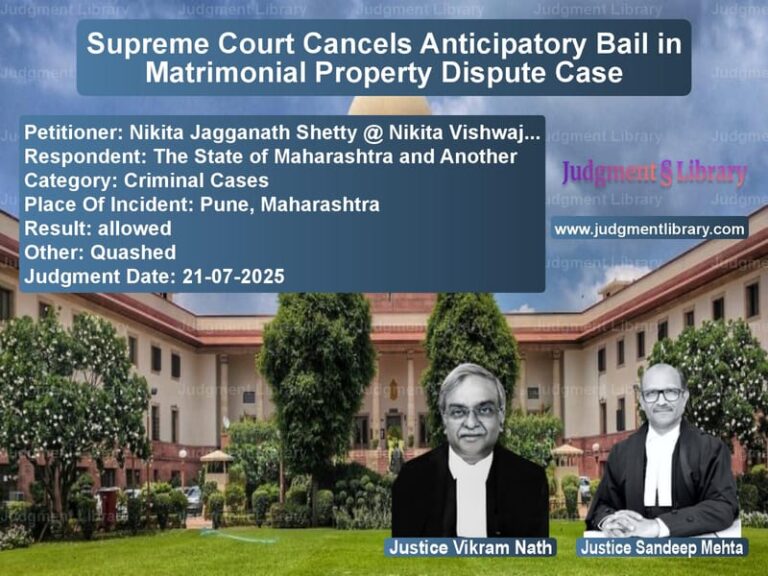Teacher Eligibility Criteria: Supreme Court’s Verdict on NCTE Notification and Minimum Marks Requirement
The Supreme Court of India recently delivered a significant judgment regarding the eligibility criteria for teachers, particularly concerning the minimum marks required in graduation for candidates who have already completed their B.Ed. The case arose from an appeal filed by Neeraj Kumar Rai and others against the State of Uttar Pradesh and the National Council for Teacher Education (NCTE), challenging the validity of a notification issued in 2011.
Background of the Case
The controversy began with the issuance of a notification by the NCTE on July 29, 2011, under Section 23(1) of the Right of Children to Free and Compulsory Education Act, 2009 (RTE). This notification required candidates to have at least 50% marks in graduation to be eligible for appointment as teachers in schools. However, before this notification, candidates who had 50% marks in post-graduation were eligible to pursue a B.Ed. degree, which was also considered a qualifying criterion for teacher appointments.
Many candidates had already completed their B.Ed. and Teacher Eligibility Test (TET) based on post-graduation marks but had less than 50% marks in their graduation. When the new notification was implemented, they were rendered ineligible for teaching positions, leading to legal challenges.
Arguments of the Petitioner
The petitioners, led by Neeraj Kumar Rai, argued that:
- They had already met the qualification criteria under the earlier regulations, which allowed candidates with 50% marks in post-graduation to pursue B.Ed.
- The new notification imposed a retrospective disqualification on candidates who had legally completed their education and TET under previous norms.
- The notification was arbitrary and violated Article 14 of the Indian Constitution, which guarantees equality before the law.
- The NCTE itself had supported a similar group of candidates in cases before the High Courts of Rajasthan and Uttarakhand, where judgments were delivered in favor of the petitioners.
Arguments of the Respondent
The State of Uttar Pradesh and NCTE countered the petitioners’ claims, stating that:
- The 2011 notification was issued to maintain uniformity in teacher eligibility standards across the country.
- Requiring 50% marks in graduation was necessary to ensure the quality of teachers and improve the education system.
- The High Court had correctly upheld the validity of the notification, as policy decisions regarding education fell within the domain of regulatory bodies like NCTE.
Supreme Court’s Analysis and Judgment
The Supreme Court examined the legitimacy of the notification and whether it unfairly disqualified candidates who had already met earlier eligibility criteria.
Referencing previous cases, the Court observed:
“The candidates who had already passed B.Ed., had the requisite percentage in post-graduation, and are otherwise covered by the notification dated 23rd August 2010, will not stand excluded only on the ground that their marks in graduation were less than the percentage prescribed in the notification dated 29th July 2011.”
The Court found merit in the petitioners’ claims and considered the fact that both the Rajasthan and Uttarakhand High Courts had ruled in favor of similarly placed candidates. The Supreme Court also noted that the NCTE had itself supported the petitioners in those cases.
Referring to the Rajasthan High Court’s ruling in Sushil Sompura & Ors. vs. State (Education) & Ors., the Court highlighted:
“The major grievance of the petitioners that their qualifications of B.Ed. and other equivalent courses are being derecognized retrospectively when there was no prescription of minimum qualifying marks earlier stands redressed in view of the statement made by learned counsel appearing on behalf of the NCTE.”
Similarly, the Uttarakhand High Court in Baldev Singh & Ors. vs. State of Uttarakhand & Ors. had observed:
“Such a restriction of requiring a minimum percentage in graduation is both unreasonable, unjust, and violative of Article 14 of the Constitution of India.”
The Supreme Court, relying on these rulings, concluded that denying eligibility to the petitioners was unfair and inconsistent with prior legal precedents.
Final Verdict
The Supreme Court ruled in favor of the petitioners and issued the following directives:
- The petitioners must be treated at par with those covered by the Rajasthan and Uttarakhand High Court judgments.
- The NCTE must issue a clarification through a supplementary notification within one month to ensure uniformity in the application of eligibility criteria.
- If any other candidates are similarly placed, they are entitled to seek relief from the concerned authorities.
With these directions, the appeal was allowed, and the High Court’s ruling, which upheld the 2011 notification, was set aside.
Implications of the Judgment
The Supreme Court’s decision has far-reaching implications for teacher recruitment and eligibility criteria:
- Ensures that candidates who had pursued B.Ed. based on post-graduation marks are not unfairly disqualified.
- Reinforces the importance of maintaining consistency in eligibility criteria.
- Prevents retrospective changes that could unfairly impact candidates who have already completed their education.
- Highlights the judiciary’s role in upholding fairness in policy decisions affecting employment and education.
This ruling provides relief to thousands of teacher aspirants across the country, ensuring that their rights are protected against arbitrary changes in qualification standards.
Don’t miss out on the full details! Download the complete judgment in PDF format below and gain valuable insights instantly!
Download Judgment: Neeraj Kumar Rai & O vs State of U.P. & Othe Supreme Court of India Judgment Dated 25-07-2017.pdf
Direct Downlaod Judgment: Direct downlaod this Judgment
See all petitions in Recruitment Policies
See all petitions in Public Sector Employees
See all petitions in Employment Disputes
See all petitions in Judgment by Adarsh Kumar Goel
See all petitions in Judgment by Uday Umesh Lalit
See all petitions in allowed
See all petitions in supreme court of India judgments July 2017
See all petitions in 2017 judgments
See all posts in Service Matters Category
See all allowed petitions in Service Matters Category
See all Dismissed petitions in Service Matters Category
See all partially allowed petitions in Service Matters Category







